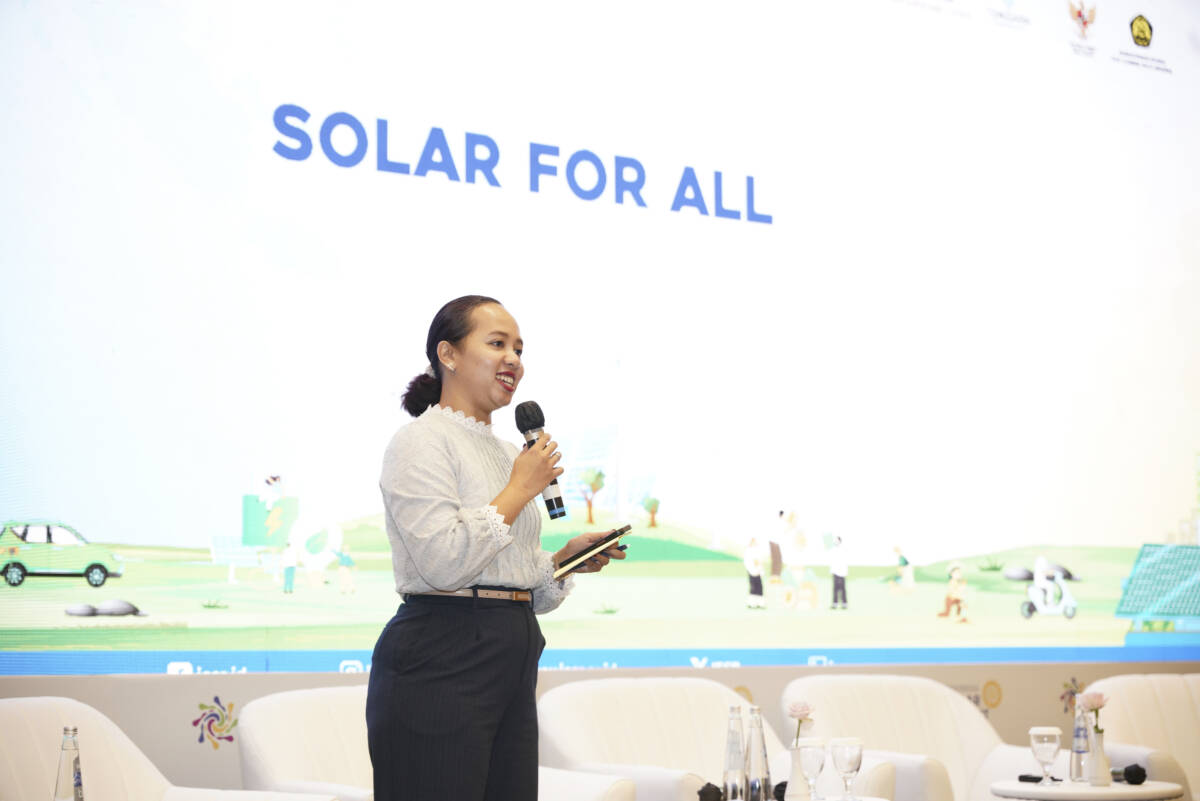Bangkok, 30 September 2025 – Southeast Asia has entered a decisive decade for building reliable, affordable, and sustainable energy systems which also help to ensure long-term energy security. As countries strive to cut emissions while sustaining growth, one lesson stands out: no nation can move fast enough alone. The region remains heavily dependent on fossil fuels, with coal, oil, and gas accounting for over 80% of its primary energy supply, while coal alone makes up more than half of power generation in Indonesia, Vietnam, and the Philippines (IEA, 2023). Yet, the region also holds vast renewable energy potential: more than 20 terawatts of solar PV technical potential (IRENA, 2022), significant opportunities for onshore and offshore wind in Vietnam, Thailand, and the Philippines, and the world’s largest untapped geothermal reserves in Indonesia and the Philippines (ACE, 2021).
Energy systems, supply chains, and financial flows are already deeply interconnected: electricity trade crosses borders, solar panels and batteries are manufactured in one country and deployed in another, and climate risks ignore national boundaries. This interdependence means that the success of one nation’s energy transition is tied to the progress of its neighbors. Only by working together can Southeast Asia build the scale, resilience, and collective strength needed to accelerate its clean energy future.
To meet this challenge, the Institute for Essential Services Reform (IESR), Indonesia, together with partners across the region, has formally introduced the Southeast Asia Energy Transition Collaborative Network (SETC), bringing together leading organizations from across Southeast Asia to address shared challenges in the energy transition. By promoting joint efforts and unified strategies, the network empowers its partners to accelerate meaningful change. This collaborative approach leverages the collective expertise and resources of diverse institutions, enabling more effective solutions for a sustainable energy future.
Initiated by IESR in 2023, SETC was officially created during its first Strategic Meeting in Bali, Indonesia in August 2024. At this milestone gathering, partners agreed to work under a unified framework, focusing on developing policy recommendations, collaborative research, strategic outreach, and coordinated communication efforts, with the overarching goal of advancing a faster and more inclusive energy transition in Southeast Asia.
SETC founding partners are: Institute for Essential Services Reform (IESR) – Indonesia, Institute of Energy Policy and Research (IEPRe), Universiti Tenaga Nasional (UNITEN) – Malaysia, Solar Energy Research Institute (SERI), Universiti Kebangsaan Malaysia (UKM) – Malaysia, Solar Energy Research Institute of Singapore (SERIS), National University of Singapore (NUS) – Singapore, Lee Kuan Yew School of Public Policy Institute for Environment and Sustainability (LKY IES), NUS – Singapore, EnergyLab Asia – Cambodia, Lao PDR, Institute for Climate and Sustainable Cities (ICSC) – The Philippines, and SDG Move, Thammasat University – Thailand.
Together, these institutions bring complementary strengths ranging from advanced research and policy innovation to grassroots initiatives and regional advocacy, reflecting the diverse strengths and expertise of institutions across Southeast Asia.
“SETC is about transforming fragmentation into solidarity,” said Marlistya Citraningrum, Interim Head of the SETC Secretariat and Program Manager at the Institute for Essential Services Reform (IESR). “By consolidating the knowledge and experience of leading institutions across Southeast Asia, we can build stronger regional ties, accelerate decarbonization, and ensure our shared priorities are represented on the global stage.”
She added, “The energy transition is not only about technologies and investments, but also about building trust and mutual dependence among countries. SETC provides a platform for think tanks and civil society to contribute evidence, ideas, and strategies that complement government action and make the transition more inclusive.”
Natharoun Ngo Son, EnergyLab Asia Regional Director, shared “We are very delighted to partner with organizations such as IESR and others. We believe that a deep understanding of the local context, combined with the ability to work closely with government leaders and help them overcome barriers in an independent and impartial manner, is essential to accelerating the transition. We are recognized not only for developing insightful policy analysis but also in facilitating its translation into concrete actions that deliver clear results. Combining our strengths is the only way to address complexity.”
Since its founding, the Southeast Asia Energy Transition Collaborative Network (SETC) has actively engaged ASEAN leadership, especially with current Chairs from Malaysia and upcoming Chairs like the Philippines. SETC shares insights and recommendations to advance the region’s energy transition, including promoting the Southeast Asia Energy Transformation Initiative (SEA-ETI). In line with the ASEAN Plan of Action for Energy Cooperation (APAEC), SETC also seeks to support deeper regional collaboration through initiatives such as the ASEAN Power Grid (APG), illustrating how the network can strengthen integration and accelerate clean energy development.
As the world races toward net zero, SETC positions Southeast Asia not as a latecomer, but as a region ready to lead, with shared strategies, resources, and commitment to a sustainable and just future.

